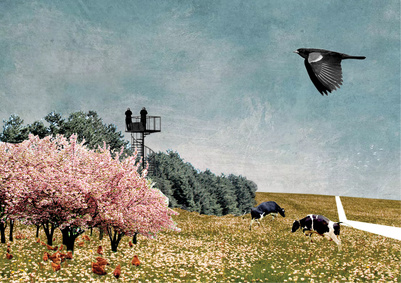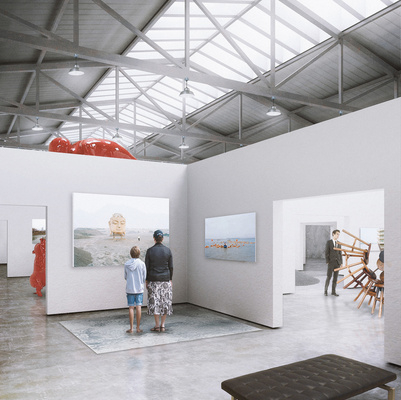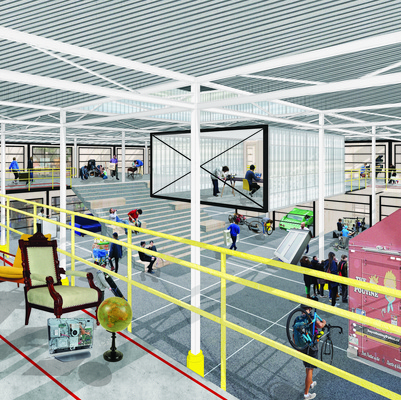New Social Monument
Introduction
This thesis project investigates the political qualities inherent to architecture as the spatial manifestation and expression of political ideals in the city. It will propose a new social housing complex – housing being the essential architectural responsibility of the welfare state – in the city centre of Berlin, the political capital of Germany. The project will, through ideological and formal design elements, discuss notions of monumentality and a more mundane every-day life, finding a way to bring these two seemingly opposing concepts together.
The Welfare State has been retreating from its role as supplier of housing in a systematic way in the Western societies during the last decades and has handed this responsibility over to the private sector. Simultaneously, the role of the architect in society has become less and less influential and building forms are shaped much more by laws of capital and economic ideas than by the designer. In addition to that, one can observe an extremely careful and humble approach to architectural expression after the failure of large-scale modernist building projects, with a crisis of representation as the result.This crisis expresses itself in a self-deprecating attitude, which is questioned by new generations of architects.
The project will, through its design elements, discuss these notions of representation and monumentality, positioning itself in the context of architectural history and theory. It will celebrate the capability of the political to deny capitalist logic and keep the idea of a city that is available for everyone alive.






